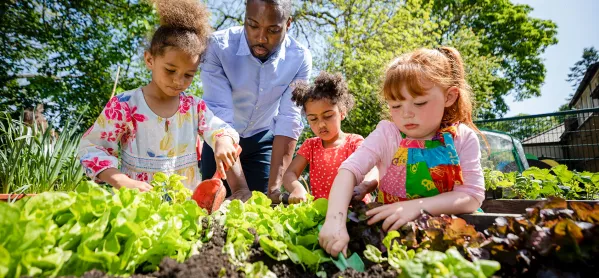Primary: Boosting pupil wellbeing could improve attainment

Improving pupils’ positivity about their academic potential may improve attainment in maths and literacy, according to a new report.
A study of 522 pupils in England, conducted by Hodder Education, SchoolDash and Nottingham Trent University, concludes that children’s academic positivity was able to account for “significant growth” in key stage 2 grammar, punctuation and spelling attainment.
And it found that children’s self-efficacy - described as “an individual’s belief in their capacity to act in the ways necessary to reach specific goals” - was able to account for “significant growth” in KS2 maths scores.
Researchers analysed pupils’ responses on an academic wellbeing survey across four dimensions (positivity, motivation, self-efficacy and resilience) and their performance in standardised attainment tests in maths, reading, and grammar, punctuation and spelling (GPS).
Their report suggests that results could be improved by implementing strategies to boost pupils’ positivity and academic wellbeing, such as “tackling bullying and fostering a positive and safe class climate”.
- News: Sats 2023: Test prep should not impact pupil wellbeing, DfE says
- Wellbeing: What works for pupil wellbeing (and what definitely doesn’t)
- Ranking: Rank schools by pupil wellbeing, ministers are told
The academic wellbeing of KS2 children throughout the period was investigated using results from an online survey: Wellbeing and Attitudes to Learning: Survey and Strategies, carried out in schools in England. The survey assessed four areas: pupils’ positivity, motivation, self-efficacy, and resilience and persistence.
The final analysis was of the impact that children’s academic wellbeing may have had on their attainment. This focused on the 2020-21 and 2021-22 school years. Only children who had sat two sequential attainment tests and two sequential wellbeing surveys were included.
The report concludes: “Implementation of strategies to improve and maintain positivity and self-efficacy in school may assist with improving children’s attainment in maths and GPS. Strategies that can be used to address positivity in a school context included tackling bullying and fostering a positive and safe class climate.”
One of the report’s authors, Katie Blainey, director of assessment product at Hodder Education, said: “The study on the correlation between attainment and wellbeing was encouraging in providing further evidence as to the impact that positive academic wellbeing can have on a child’s attainment and ability to progress. Investing time in further support and strategies to improve self-efficacy and academic positivity could provide a much wider educational benefit for children.”
The findings are part of a report, The longer-term impact of Covid-19 on pupil attainment and wellbeing, which has been published today.
It concludes that the partial school closures during the pandemic had an effect on primary school children’s attainment and academic wellbeing.
The impact, and ability to reach pre-pandemic levels, has varied by school group, pupil group and subject. Although the average attainment in reading in upper KS2 appears to be back to pre-pandemic levels, younger pupils (KS1 and lower KS2) may still be behind in both reading and maths, the report said.
In grammar punctuation and spelling, as of autumn 2022, children in all years of primary school remained approximately two months behind the pre-pandemic attainment level. In reading, children in KS1 were approximately one month behind in spring 2022 compared with spring 2019. In contrast, children in KS2 were likely to be attaining similar levels to their pre-pandemic peers.
In maths, children in KS1 were approximately one month behind in spring 2022 compared with spring 2019. In contrast, children in KS2 were attaining at approximately the same level in comparison with spring 2019. The disadvantage gap between children eligible for pupil premium funding and their peers remained large for all subjects and year groups. It also increased each autumn between 2020 and 2022 for Year 6 reading and maths.
Researchers say children who were starting Year 3 in autumn 2020 and autumn 2021 had larger decreases in academic wellbeing than any other year group in KS2. These children, who were in Years 1 and 2 at the beginning of the pandemic, also experienced the largest impact on their attainment. The majority of children in KS2 reported some vulnerability in self-efficacy in the 2021-22 school year.
You need a Tes subscription to read this article
Subscribe now to read this article and get other subscriber-only content:
- Unlimited access to all Tes magazine content
- Exclusive subscriber-only stories
- Award-winning email newsletters
Already a subscriber? Log in
You need a subscription to read this article
Subscribe now to read this article and get other subscriber-only content, including:
- Unlimited access to all Tes magazine content
- Exclusive subscriber-only stories
- Award-winning email newsletters
topics in this article



